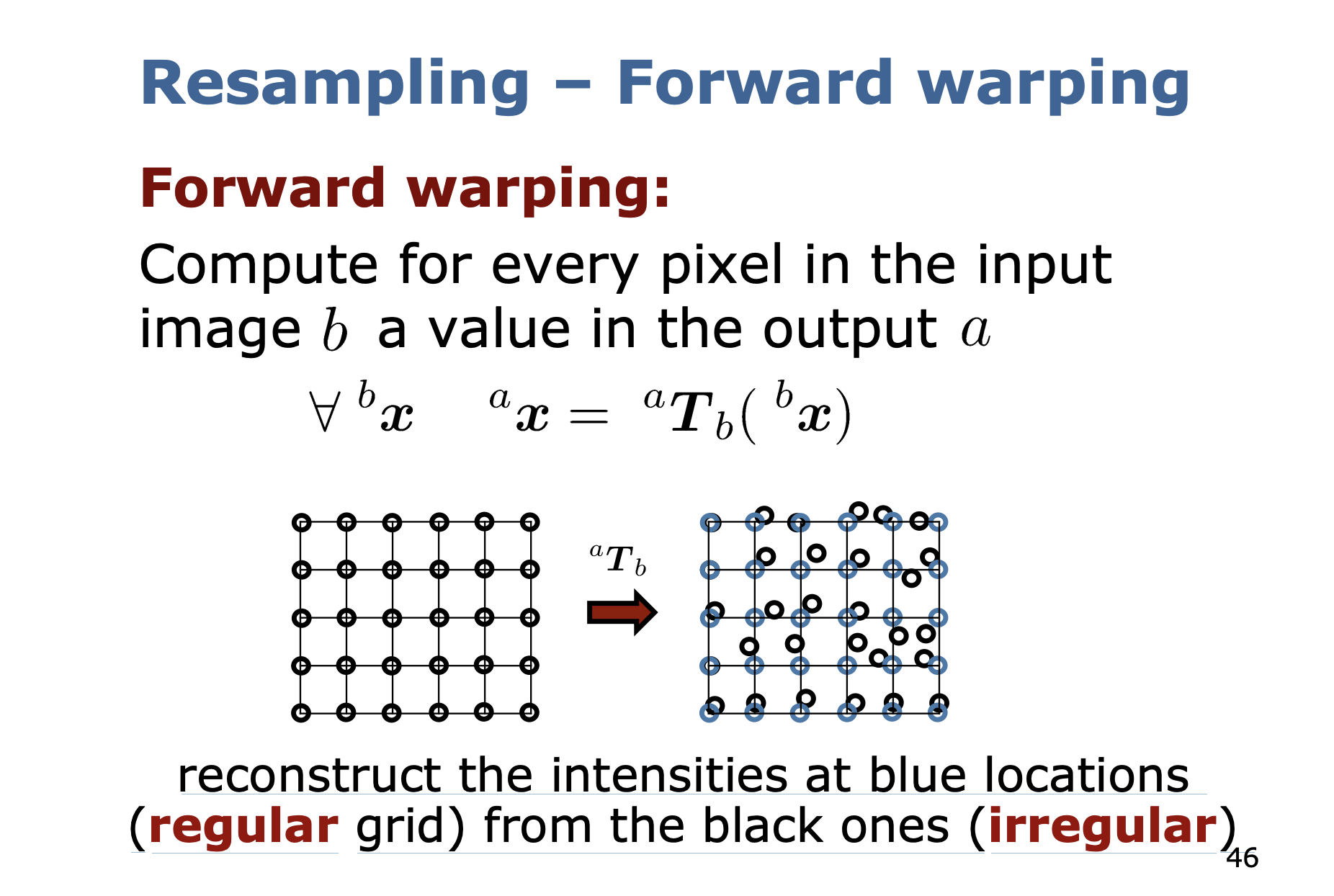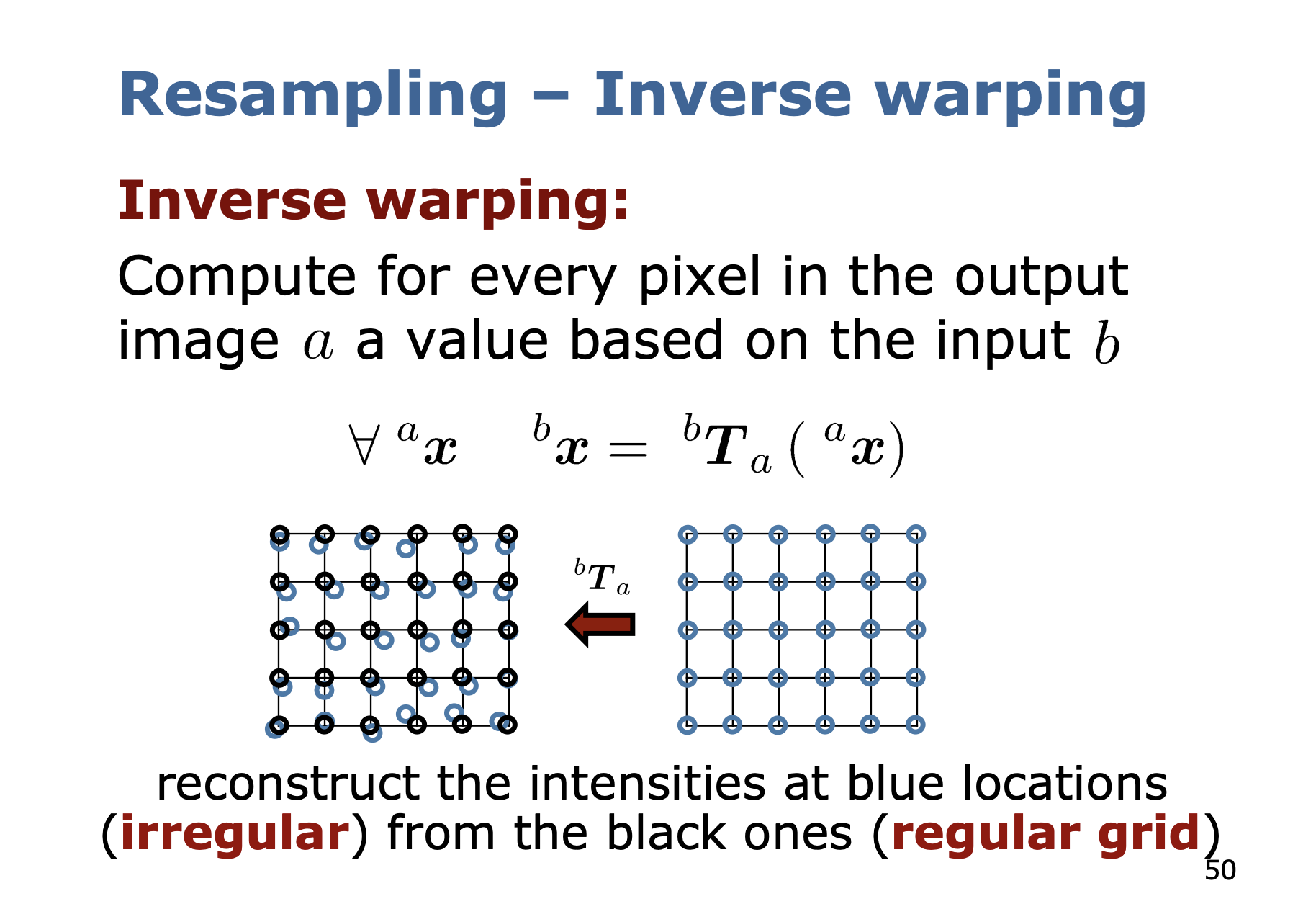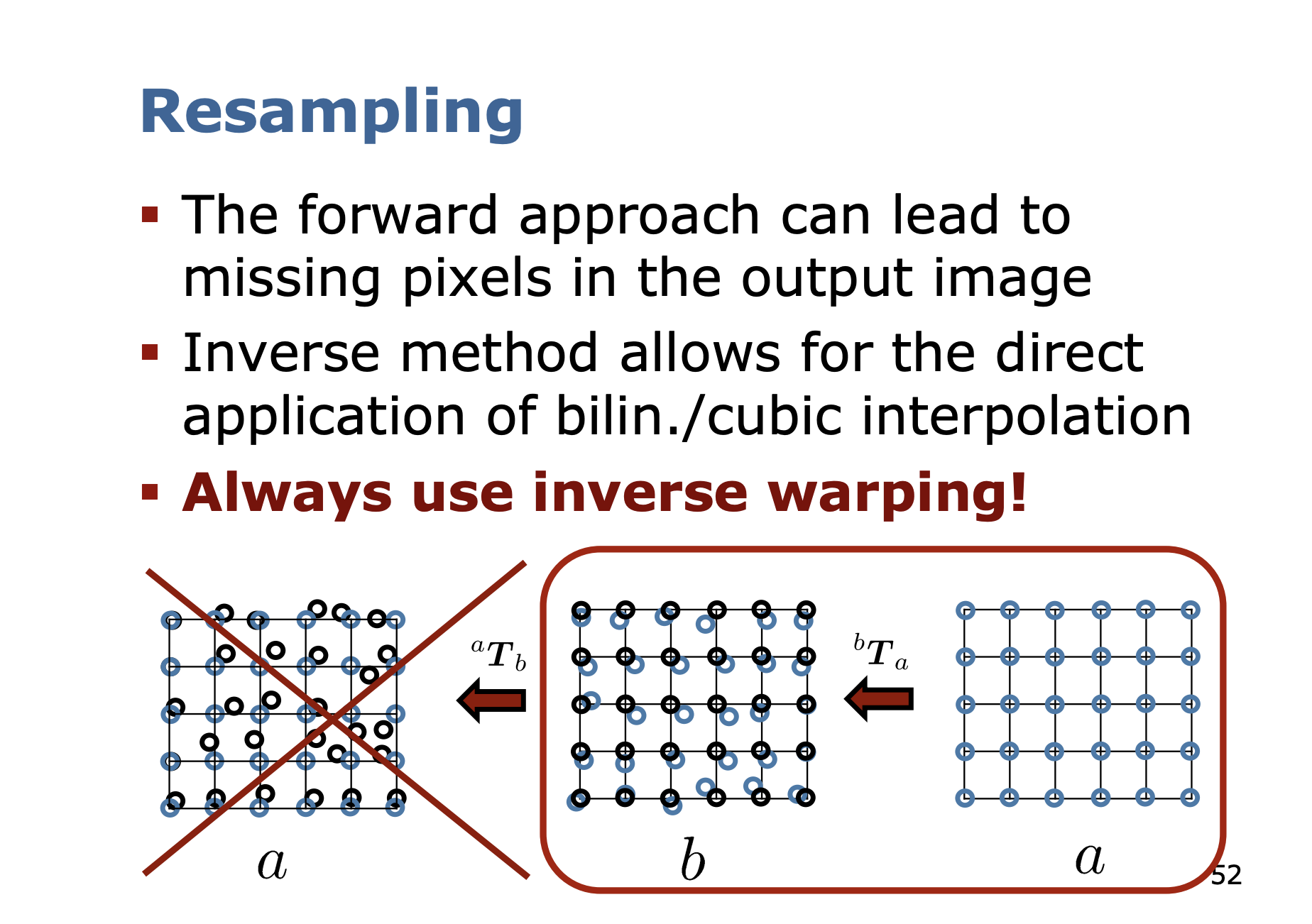Resampling
Notes from Cyrill Stachniss.
Resampling
Resampling refers to the process of changing the dimensions or geometry of an image.
Resampling is performing a discretization and quantization.
When is resampling actually used?
- Image zooming
- Rotation of image
- Geometry tranformations (skewing, warping, perspective transformions)
What is the problem that resampling is solving?
These transformations that we are applying on images lead to non-integer coordinates.
To assign intensity values from the input to the output images, we need to interpolate.
Resampling - Forward Warping
- Compute for every pixel in the input image a value in the output

Inverse Warping

Forward or inverse warping?
Always use inverse warping!
- The forward approach can lead to missing pixels in the output image
- Inverse method allows for the direct application of bilin./cubic interpolation
You can get more complex warping behavior

Image Half-Sizing
If you are taking half the size, you are neglecting information.
Use the matrix to remap the pixel positions.
Through simple subsampling, we get aliasing artifacts.
Solution: Apply a Binomial Filter before subsampling.
Why is smoothing step needed?
- Simple subsampling results in aliasing and loosing details
- Smoothing combines pixel information from neighbouring pixels
This is the kernel that was used
How much smoothing is needed?
- Depends on the kernel
- Depends on the width of the kernel
- Depends on the scale of the transformation
Width of a kernel is given by its standard deviation.
For the box filter
For the binomial filter
Scale of a Transformation
where you have the following expansion

For the Gaussian filter
Consider the Scale for Resampling
- : Image becomes smaller
- Recommendation:
- : Same scale
- Use bilinear interpolation or bicubic for high quality results
- : Image becomes larger
- Use bicubic interpolation
What is the point of same scale case?
think about the rotation, or some shift that you want to take into account.